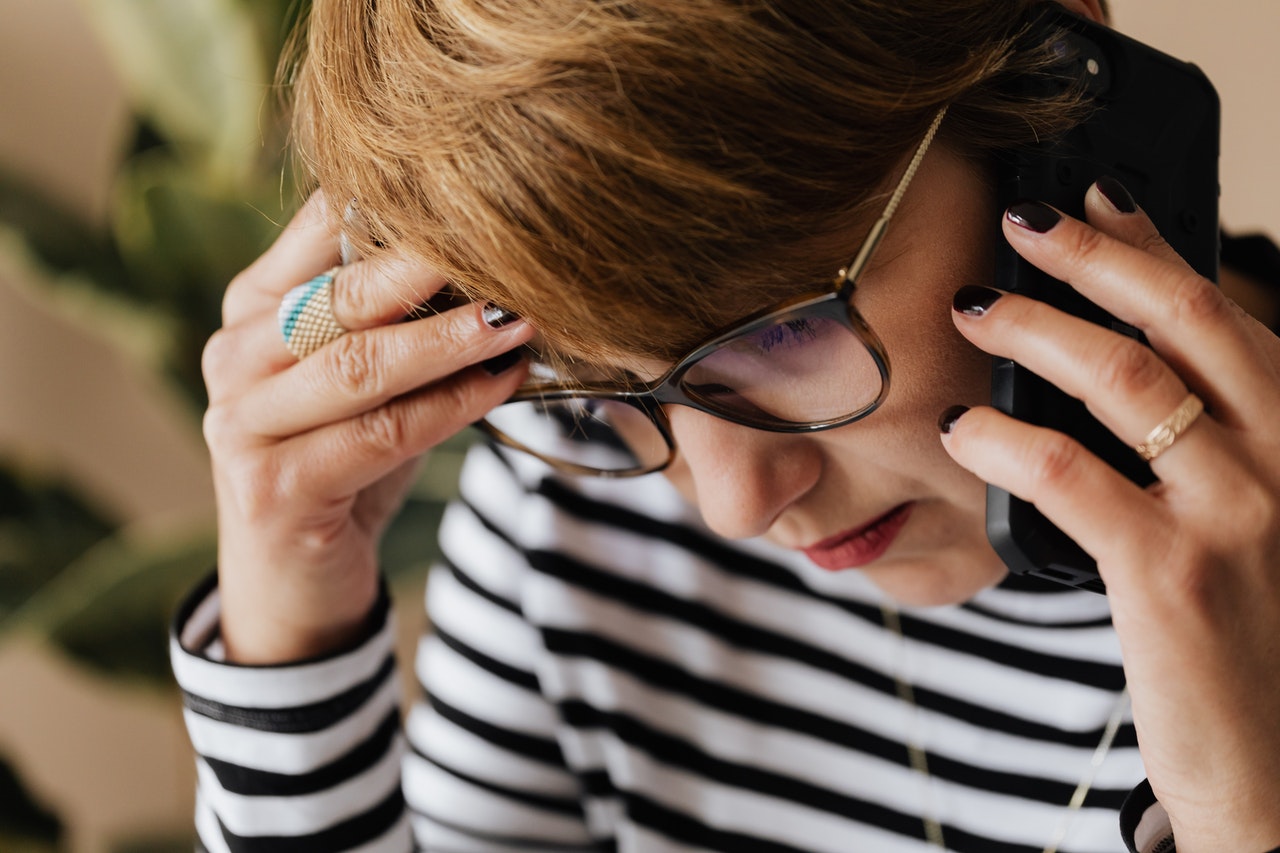Should you try therapy? 5 signs it’s time to see a mental health professional
Have you been feeling stressed, depressed, or unlike yourself lately? You might be wondering whether to wait for these feelings to pass, or if you should speak to a therapist.
It’s always worth reaching out for professional support, especially if you’ve been feeling down or on edge for more than a few weeks. It’s never too early to ask for help. A trained counsellor or psychotherapist can help you explore your thoughts and feelings in a safe, non-judgemental environment. You don’t need to go it alone.

It’s normal not to be okay all the time.
There’s no shame in seeking help.
Many of us have noticed a change in our mood as a result of the Covid-19 pandemic and Victoria’s strict lockdowns. In fact, at the height of the pandemic, Australians contacted mental health helplines more than 140,000 times in just four weeks.
These challenging times have triggered new mental health concerns for many people, e.g. anxiety, post-traumatic stress symptoms, depression, and insomnia. For other people, they’ve intensified existing mental health problems.
We can all benefit from therapy from time to time.
You don’t need to have a concrete reason to talk to a mental health professional. You don’t have to be at the end of your rope. You don’t need to have a diagnosed mental health disorder to be able to get help—therapy is available to everyone. You might just want to feel better or get something off your chest.
That said, it’s important to look out for the following warning signs. They’re a good indication that you shouldn’t try to handle things on your own.
5 signs it’s time to see a mental health professional
- Your emotions feel more intense than usual.
Are you sad, easily agitated, frustrated, or anxious? You may be experiencing burnout, stress or depression – mental health conditions that can improve with treatment. It’s also a good idea to make an appointment with a therapist if you’re withdrawing from family and friends or eating or sleeping more or less than usual. Seek help early before it starts to impact your quality of life.
- You’re slipping into unhealthy habits.
Sometimes people use drugs, alcohol, food or sex to cope with negative emotions or experiences. If you’re worried about any of these behaviours, or have noticed you’re having a hard time controlling or stopping them, a counsellor or psychologist can help you find healthier coping mechanisms.
- Negative thoughts are creeping in.
Have you been having negative thoughts – about yourself, other people, or certain situations?
If you’re struggling to cope with negative thoughts or fighting feelings of hopelessness, it’s important that you talk to someone. Even if those thoughts come and go, it’s still a good idea to get help.
If you start thinking about death or suicide, it’s time to seek help immediately. If you don’t feel like you can stay safe, you can call Lifeline on 13 11 14 or the Suicide Call Back Service on 1300 659 467. If it’s an emergency, please call 000.
A therapist will help you find ways to relax and quieten your mind. They can also help you to feel safe from and cope with suicidal thoughts.
- Your emotions get in the way of living your life.
Do you feel like you’re losing control?
Maybe your emotions have been stopping you from doing things you want to do, or usually enjoy. Maybe you’ve been feeling more irritated— having angry outbursts at your family or colleagues. Sometimes our reactions and emotions aren’t easy to manage, and you can’t understand why you feel the way you do.
A therapist can help talk you through it, uncover the underlying issue, and give you coping techniques and tools to manage your emotions better. This can help you live a more meaningful life.
- You’ve lost something important to you.
When you lose something that you love – a job, a pet, a relationship, loved one, or an aspect of your health or fitness – you can lose the sense of self-worth it gave you. You lose that feeling of connection, sense of stability, or social status.
It’s natural to grieve your loss. You might also experience anxiety and/or depression.
A good therapist can help you figure out how to move forward and help you make sense of what has happened.

How to find the right therapist
Once you decide to get help, it’s time to find the right mental health professional for you.
You may have been to therapy before and felt like it didn’t do you any good.
The relationship you have with your clinician has a huge impact on the effectiveness of your treatment. It’s kind of like finding a good hairdresser— you might need to try a few before you find someone you ‘click’ with.
Recommendations can be helpful but the therapist that works for someone else might not work as well for you.
The right therapist should make you feel:
- Like you can trust them
- Confident in their ability to help
- Supported and hopeful after a session
- Comfortable and understood
At first, it can be strange to open up and be vulnerable with a complete stranger. Any awkwardness should wear off with time – just give it a few sessions.
If you’re still not feeling it, consider whether it’s your therapist’s technique or if you’re getting to a tricky part of the process. A good therapist won’t always try to make you feel better during a session. Sometimes the goal is to challenge you and help you answer questions that you’re avoiding.
It’s inevitable: you may be reluctant to go to therapy some days. But keep going because the long-term benefits of therapy are well worth it.
However, if you really don’t think your therapist is the right fit, it’s ok to ask to be referred to someone different.
5 benefits of therapy
- You’ll discover new coping strategies
Your therapist will teach you tips and techniques for dealing with your emotions, feelings and responses. This could include things like talk therapy and mindfulness practices, exploring medication options, and learning tools for interrupting negative thought patterns and behaviours.
- You’ll get clarity and peace of mind
Therapists listen to your story and help you make connections. They should never tell you what to do but they might offer guidance or recommendations. Sometimes just hearing yourself talk about your issues out loud helps you see things from a different perspective.
- You’re more likely to have better physical health
Research shows that poor mental health can be linked to chronic physical conditions. For example, anxiety and stress is known to cause psoriasis and skin conditions. On the flip side, people in good emotional health have been shown to more easily deal with physical health issues if they arise.
- Your relationships will get stronger
Therapy can help you have more fulfilling relationships with the people around you. It can help you modify your reactions to other people’s behaviours, or address difficulties relating to others such as insecurities, personal boundaries or trust issues.
- You’ll achieve better outcomes than with medication alone
Psychotherapy (talk therapy) when combined with pharmaceutical treatment has been proven to be more effective than medication alone when it comes to treating anxiety and depression.
Find the best mental health professional near you.
The bottom line is that it’s never too early to get help. You don’t need to wait for a sign. It can be a good idea to talk to someone before serious problems develop.
If your feelings escalate to the point that you question whether life is worth living, please reach out for help right away. Caring people are waiting to speak to you via free services like headtohelp and headspace.
Otherwise, contact our Intake Team today for a confidential discussion.
Take care.

Make a booking
It's quick and easy to book online or you can call our friendly intake team on
03 9810 3000. We are here to help.